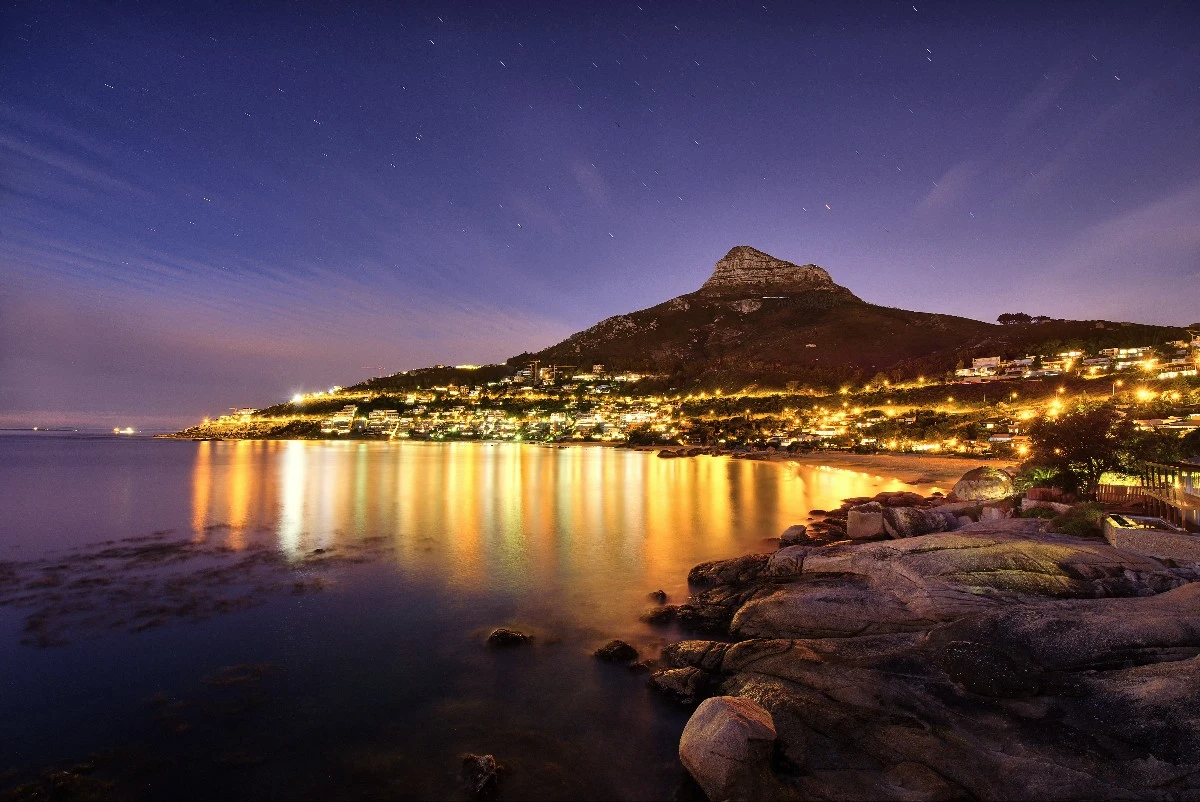Outdoor lighting is used for security, landscaping, estates and residential areas, to improve safety around pools and gardens, and as a great way to introduce an ambient atmosphere around outdoor dining spaces, seating areas and play spaces.
For businesses and property owners close to the coast, the challenge is that the higher concentration of salt within the air causes electronics to corrode far faster than they otherwise might, where rust spots develop, and lights show signs of corrosion around the casings.
Aside from the fact that lights may need replacing more often or that outdoor lights may stop functioning altogether, there is an underlying hazard where wires and cables connected to mains power sources become damaged.
The best possible solution is to use solar rust-resistant outdoor lights – designed to withstand the environmental conditions with ease and with zero reliance on mains electricity.
Why Do Homes and Businesses Near the Sea Need to Consider Outdoor Lighting Options Carefully?
As a rough indication, properties that are anywhere within ten miles of the sea can experience rapid corrosion, impacting any electricals or appliances installed outside. Those closer to the coast also need to be mindful of sea mist, where in poor weather, the breeze contains higher amounts of salt blowing in from the water.
We often speak with clients in Cape Town, Durban, Plettenberg Bay, Dolphin Coast and other coastal cities or regions who are all too familiar with the impact of seawater on fencing, vehicles and the exterior of their properties. An added complexity here in South Africa is that areas to the southwest are adjacent to the Atlantic Ocean, which has the highest levels of salinity of any sea – meaning the impacts of corrosion are more severe.
Fortunately, outdoor lighting engineered to be corrosion-resistant can overcome the issue, and there are several quality marks and accreditations you can look for that indicate an outdoor light will remain in great condition and operate as you expect for years to come.
How to Tell if an Outdoor Lighting Model Is Rust Resistant
We’ve mentioned the advantage of solar lighting – because each unit functions autonomously and doesn’t need wiring or cabling, you can install or position your light in your chosen placement without any further work. The absence of wires extruding from a self-contained unit immediately means your lighting will last longer, and you won’t need to regularly check the insulative materials covering wires to monitor for signs of deterioration.
The next step is to look for lights that have a rating of at least IP44 or, ideally, higher. This independently tested accreditation stands for Ingress Protection Rating and shows that the lighting unit does not have materials or gaps that allow water or moisture to get inside the outer casing.
Higher ratings offer greater assurance, and we display IP scoring against all our solar lighting models. For example, our Exquisite Range Solar Area Light is rated IP64, the Mars 5 Solar Wall Light and Sahara Solar Street Light are both rated IP65, and our Solar Smart Area Light is rated IP66. That rating indicates that the casing is fully protected against all particulates, can withstand direct jets of water at any angle, and has been assessed against continuous airflow.
We’d also advise that you look for outdoor lights that are made from a corrosion resistant material, where airborne salt contains high amounts of chloride that can eat away at common metals like coated steel and cast iron with surprising speed.
Solar Lighting Casing Materials With Natural Corrosion Resistance
Some metals are inherently more suited to coastal regions since they corrode or rust significantly slower than others – examples include stainless steel and brass. The issue is that both metals are heavy, and less suited to use in outdoor lighting; SUS304 stainless steel is incorporated within our fittings and fixtures, which enhances durability without adding excess weight.
SoLight’s wide range of premium solar lighting models are designed with an aluminium alloy – a tough, robust and hard-wearing metal that remains lightweight enough to be mounted on a fence or wall or used as overhead lighting.
While we use the term ‘rust’, technically, aluminium cannot rust because this type of corrosion only affects iron and metals that contain iron, including steel. Rust occurs when iron oxide forms on the surface of the metal.
Aluminium is also highly corrosion resistant, with natural resilience. When aluminium is newly produced, it forms a very thin, incredibly hard film called aluminium oxide – which is almost entirely immune to corrosion in most normal environments. Blending this high performing metal to create an alloy further boosts that protection.
Another great aspect of aluminium is that it is widely available, and sustainable. The Aluminium Association notes that around 75% of all aluminium that has ever been produced remains in use – because the metal doesn’t corrode and can be easily recycled.
If you are keen on fitting outdoor solar lights as an environmentally conscious alternative to electrical lighting, this level of sustainability makes the corrosion resistance of aluminium solar lighting even more appealing.
The Best Solar Rust-Resistant Outdoor Lights
The solar lighting we recommend will depend on several variables, and our catalogues range from security and garden lights to landscape and estate lighting. However, our advice would be to pick a professionally engineered solar lighting model that incorporates the IP65 waterproof rating we’ve talked about.
Other features well-suited to properties in coastal areas include TCS technology – this battery temperature control tech prevents solar batteries from being impacted by heat or cold, which is the primary reason many lower-quality solar lights stop working after just one or two years.
Finally, we’d suggest choosing a solar light that incorporates long-life solar cell batteries that deliver optimal performance without losing their capacity to recharge or hold a charge throughout the night. Our polycrystalline and Lithium-ion batteries do just that and have a lifespan extending upwards of a decade.
For more information about rust-resistant outdoor lights for properties in coastal areas, the standards and accreditations we’ve discussed here, or tailored recommendations about the best solar lighting for your home or business, please get in touch at any time.





